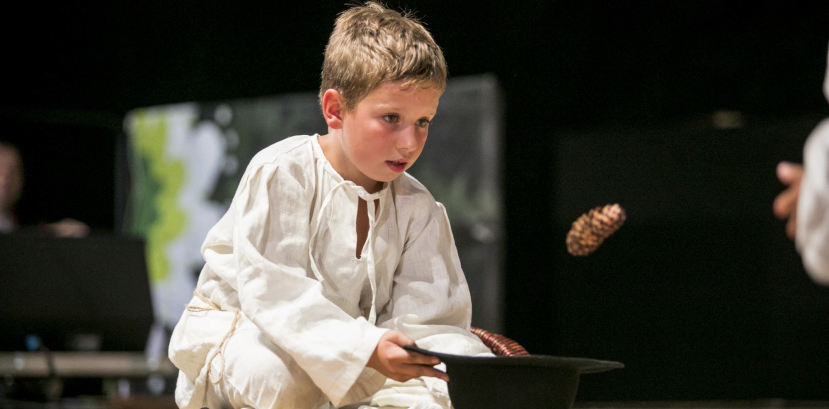As the long-standing tradition has it, Festival press officer Kamil Cyganik has prepared a short reflection - the leitmotif of this year’s edition of the FESTIVAL OF THE CHILDREN OF MOUNTAINS.
“Listen and heed the advice,
for Godly command says that:
He who never knows bitterness,
Will not know Heavenly happiness.”
These words can be found in one of the most important Polish dramas” - Forefathers’ Eve by Adam Mickiewicz. The scene is very gloomy. The villagers meet in the graveyard to inquire the departed about the kind of help that they need in the beyond.
Two children appear.
They departed this life early, sinless. Why then can they not find peace in the shadowland? Because in their lives they never experienced bitterness.
“Carefree childhood!” This must have been thought up by someone who is like that priest who forgets that he was a clerk.
Let us take the example of shepherds that appear in the Festival of the Children of Mountains programmes. Ancient authors of the Arcadian motifs would probably associate shepherds with the carefree feeling. However, boredom was all in a day’s work for children grazing cattle in mountain pastures. It was there and then that fifes, pipes and melodies were created. And what about loneliness? That is one big concern! A youngster let out a cry, heard the echo or a friend in a distant pasture respond. And... that was it. There was nothing but to chew on one’s loneliness, with sheep and cows around.
And his age peer living in town? He had his worries too! His kindergarten mates would not play with him. And why would anyone want to go to kindergarten in the first place? One of his baby teeth was going loose, the first one. It had been raining since the very morning, and he had planned to go with his granny to the park, to ride on a merry-go-round.
And all these are real and by no means trifling sufferings.
But such should children’s worries be! And no other! Such like these! And who should be responsible for child's worries being just right for the child's heart and mind? None other than the adult.
Some worries arise when the parents fight and then break up. The child loses a sense of security, feels guilty, thinking that it was his fault. Or when - like across the eastern border, in our neighbours’ country - missiles keep exploding, houses are collapsing, family members dying... which all gives rise to tremendous fear.
All that those children who never new suffering needed were two mustard seeds to get to heaven. And what will those adults who fill children’s lives with immeasurable suffering need? I dread to think!
We sow seeds in children's hearts and souls. Has anyone ever seen sown wheat sprout up into barley, or a plum sapling planted with love bear apples in sunny autumn? It sounds like a cliche to say that you will reap what you have sown. But if it’s true, then we probably forget this truth too often, whenever we get to guide young people through their lives. If we introduce them into the world of hatred, they are going to live it; if we feed them anger, they will respond with anger...
That is why we need such places as Nowy Sącz, and such events as the Festival of the Children of Mountains. The children who come to the land on the Dunajec and Kamienica rivers become suffused with comradeship, mutual respect, peace and love. And some years down the line they are going to emanate all these.
That, however, does not mean that a child does not need worries at all! The Festival has its share of these - fatigue, heat and the tears of goodbye at the end. Worries are necessary, because they build character. But when in excess, they erode it.
When a child is smiling,
The world goes back to normal.
When a child is weeping,
You should beat your chest.
Kamil Cyganik

